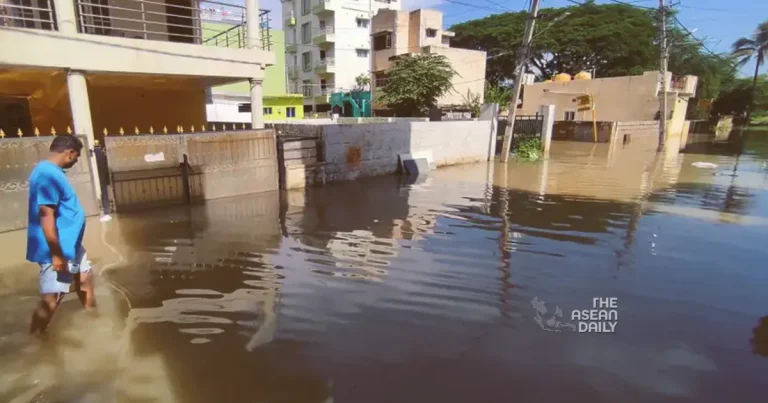21-9-2023 (SINGAPORE) A recent survey has revealed that less than half of respondents in Southeast Asia perceive climate change with high levels of urgency, despite the region experiencing extreme weather events linked to global warming. The Southeast Asia Climate Outlook: 2023 Survey Report showed that only 49.4% of respondents considered climate change “a serious and immediate threat to the wellbeing of their country,” down from 68.8% in 2021.
The annual report, conducted by the ISEAS – Yusof Ishak Institute, also found that 41.9% of respondents believed that monitoring climate change was important. This discrepancy raises questions about whether immediate concerns, such as energy shortages and security issues, are linked to climate impacts, geopolitical matters, or domestic problems.
Malaysia’s Minister of Natural Resources, Environment, and Climate Change, Nik Nazmi Nik Ahmad, commented on the survey results during a panel discussion, noting that these figures would likely generate significant discussion. He suggested that the drop in climate urgency might be attributed to the prominence of basic economic issues, particularly given the impact of the COVID-19 pandemic and ongoing recovery efforts.
Despite the decrease in climate urgency, the survey found that food security remained a major concern. Seven out of ten respondents expressed significant worry about food availability and affordability in the next three years due to climate impacts.
In addition to food security concerns, over 40% of respondents in Singapore, Malaysia, Indonesia, and the Philippines expressed apprehension about declining fisheries resulting from ocean warming and unpredictable weather. The survey identified floods (79.0%), heatwaves (51.4%), and droughts (47.6%) as the most pressing climate impacts on agriculture in the region.
To address global food security issues, the survey indicated that most respondents believe governments should prioritize climate-adaptive farming methods (67.2%), increase domestic food production (56.6%), and invest in agri-food (63.9%).
The survey also found that a majority of respondents across the ten countries claimed to be taking action to address climate change by making lifestyle changes. Specifically, 83.7% of Southeast Asian respondents reported reducing the use of single-use plastics, and 56.9% said they actively reduced electricity consumption.
Despite these personal actions, attitudes towards climate action tended to be more passive, with 75.2% of respondents following news and sharing information about climate change, and 49.9% adopting more sustainable lifestyle options.
The survey results come amid growing concerns about global temperature increases, with United Nations Secretary-General Antonio Guterres warning that “humanity has opened the gates to hell.” He emphasized the importance of limiting the rise in global temperatures to 1.5 degrees Celsius to avoid long-term climate catastrophe. In July of this year, the world experienced the hottest day ever recorded, with an average global temperature of 17.01 degrees Celsius, surpassing the previous record set in August 2016.




